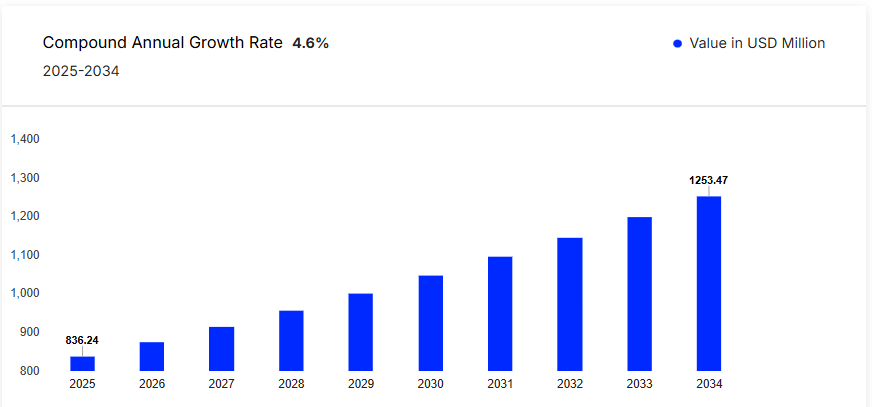The Chile In-Vitro Diagnostics Market represents a dynamic and influential segment of the country’s healthcare ecosystem. As healthcare systems worldwide advance toward personalized, efficient, and preventive care, Chile is no exception. In-vitro diagnostics (IVD), which encompasses tests conducted outside the human body to detect diseases, monitor conditions, and guide treatment decisions, has become a cornerstone of modern clinical practice. In Chile, IVD solutions support clinicians, laboratories, and public health agencies by providing accurate insights that enhance patient outcomes and contribute to stronger healthcare infrastructure across the nation.
Understanding the Market
The Chile In-Vitro Diagnostics Market spans a wide range of tools, technologies, and methodologies designed to identify and analyze biomarkers, pathogens, and genetic material. At its core, IVD involves tests performed on blood, tissues, urine, saliva, and other specimens to evaluate health status and diagnose medical conditions. These tests rely on sophisticated technologies such as immunoassays, molecular diagnostics, hematology analyzers, microbiology platforms, and point-of-care devices.
The market can be understood through its major components:
Diagnostic Technologies
Key technologies include molecular assays for detecting viral or bacterial infections, immunoassays for hormone and protein analysis, clinical chemistry for metabolic insights, and hematology analyzers for blood-related evaluations.
Testing Applications
IVD tests are used across several clinical areas—infectious diseases, oncology, endocrine disorders, cardiology, reproductive health, and genetic screening. Each of these applications contributes to early disease detection and personalized treatment planning.
End Users
Hospitals, clinical laboratories, diagnostic centers, research institutes, and home-care settings are primary end users. In recent years, the adoption of decentralized testing and point-of-care diagnostics has expanded accessibility beyond traditional labs.
Why This Market Matters
The importance of the Chile In-Vitro Diagnostics Market lies in its capacity to address critical healthcare challenges. Early and accurate diagnosis remains one of the most powerful tools in combating disease, improving survival rates, and reducing long-term healthcare costs. IVD solutions enable clinicians to detect conditions at earlier stages, often before symptoms appear, allowing for timely intervention.
Furthermore, the market plays a key role in supporting public health initiatives. IVD technologies assist in disease surveillance, outbreak management, and health screening programs, all of which are vital in a country with diverse regions and varying access to healthcare services. Accurate diagnostic information helps stakeholders allocate resources effectively and develop strategies tailored to national health priorities.
Evolving Relevance in Today’s Landscape
The role of IVD in Chile’s healthcare sector continues to evolve, driven by rising awareness of preventive care and growing interest in personalized medicine. There is a notable shift toward molecular and genetic testing, fueled by advancements in sequencing technologies and greater emphasis on targeted treatments—especially in oncology.
Point-of-care diagnostics are also gaining traction, providing real-time results and expanding testing capabilities in remote or underserved locations. This shift improves accessibility and reduces the burden on centralized laboratories. Additionally, digitalization and remote monitoring are reshaping the diagnostic journey. Integration of diagnostic platforms with electronic health records enhances workflow efficiency and enables faster clinical decisions.
Awareness campaigns, chronic disease management programs, and increasing patient involvement in personal health monitoring further drive the relevance of IVD technologies. As healthcare providers and patients seek rapid, non-invasive, and highly accurate testing, the market continues to attract attention and investment.
Practical Uses: Enhancing Real-World Healthcare Outcomes
In practical settings, in-vitro diagnostics directly improve patient outcomes by guiding clinical decision-making. For example:
-
Primary Care and Hospitals: IVD tools help doctors quickly diagnose infections, metabolic conditions, and organ dysfunction, ensuring timely treatment.
-
Oncology: Advanced molecular tests identify genetic mutations, enabling oncologists to select targeted therapies and track treatment response.
-
Public Health: Screening programs for communicable diseases rely on reliable diagnostics to prevent community spread and monitor population health.
-
Chronic Disease Management: Tests for glucose, cholesterol, hormone levels, and kidney function assist in managing long-term conditions.
-
Remote Healthcare: Point-of-care devices allow healthcare delivery in geographically isolated areas, supporting equitable access.
These applications highlight how integral diagnostics are to nearly every aspect of healthcare delivery in Chile.
Forward Perspective: What the Future Holds
Looking ahead, the Chile In-Vitro Diagnostics Market is likely to be shaped by continued technological innovation and expanded integration of data-driven healthcare. Advancements in artificial intelligence, automation, and multiplex testing will refine diagnostic accuracy and efficiency. Personalized medicine is expected to become even more prominent, with genetic and molecular diagnostics playing a larger role in routine care.
Additionally, increased collaboration between healthcare providers, industry players, and government agencies may strengthen infrastructure, enhance regulatory standards, and promote local manufacturing or technology adoption. As Chile continues to invest in digital transformation, laboratory automation, and telehealth, the diagnostic landscape will become even more sophisticated and interconnected.
 :
https://in.pinterest.com/lalitsenseo/
:
https://in.pinterest.com/lalitsenseo/

